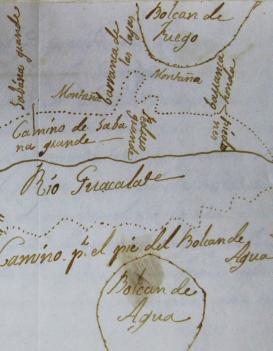Sophie Brockmann's research concerned networks of scientific knowledge in Central America in the late-colonial period and beyond. Her PhD dissertation "Surveying Nature: The Creation and Communication of Natural-Historical Knowledge in Enlightenment Central America" examined the role of natural history in colonial and independent Central America, in the period c. 1768–1838. She focused on methods of gathering and creating knowledge about natural history, broadly understood to include plants, natural resources, geography, and topography, and even antiquities. Through this integration of a number of traditionally distinct fields of enquiry into one regional case study, the dissertation presents a uniquely broad perspective on the engagement of Central Americans with nature, landscape, and natural resources. Sophie Brockmann also paid special attention to the different genres through which such information was expressed, such as the relationship between textual descriptions of topography and maps, or the difference between a bureaucratic report on a plant intended to be read by the government in Madrid, and a locally useful description of a medicinal plant.
Sophie Brockmann is particularly interested in the communication networks that both underpinned this knowledge-gathering and allowed it to be shared among various locations within Central America, and with places further afield. Her project showed how these networks pitted different sources of knowledge against each other, and how debates about these sources in newspapers and official documents help us establish Central American elites’ view of their place within the wider scientific and political world. These conclusions demonstrate the value of enquiring into scientific practices in supposedly "peripheral" locations and communities, adding to a growing historiography that defines the sciences in the late-colonial Atlantic world not by their connection to the metropole, but recasts them as products of local circumstances and the work of autonomous local agents. Her work also relates to a broader interest in the role that scientific knowledge has played in different political contexts around the globe.

'Sketch-Map of the Road to Mixco', 1837 (Archivo General de Centro América, Guatemala City).
Project
(2013)
Surveying Nature in Central America, 1770–1840
- Sophie Brockmann
